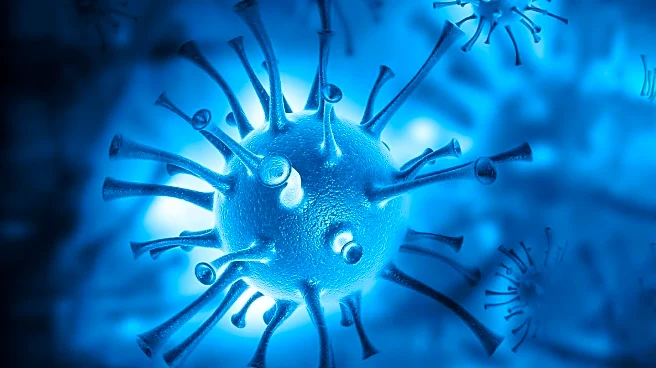What's Happening?
Researchers are exploring the use of bacteria as 'living medicines' to target and destroy cancer cells. This innovative approach involves programming bacteria to locate tumors, deliver treatment directly
to the affected area, and then self-destruct to prevent further spread. Bacteria have shown potential in activating the immune system to attack cancer cells, and certain strains can naturally thrive in tumor environments while leaving healthy tissue untouched. Clinical trials are underway to test bacterial therapies for solid tumors, including pancreatic, lung, and head and neck cancers. The research aims to enhance existing cancer treatments by using bacteria to deliver cancer vaccines and boost immunotherapy and chemotherapy effectiveness.
Why It's Important?
The development of bacteria-based cancer treatments could revolutionize oncology by offering more targeted and effective therapies. This approach addresses challenges faced by conventional treatments, such as difficulty in penetrating tumors and resistance development. By harnessing bacteria's natural ability to thrive in tumor environments, researchers can potentially improve treatment precision and reduce side effects. The use of bacteria as delivery vehicles for cancer vaccines and therapies could lead to personalized treatment plans that enhance the body's immune response against cancer. If successful, this method could shift cancer treatment paradigms from static drugs to adaptive biological systems, offering new hope for patients with hard-to-treat cancers.










